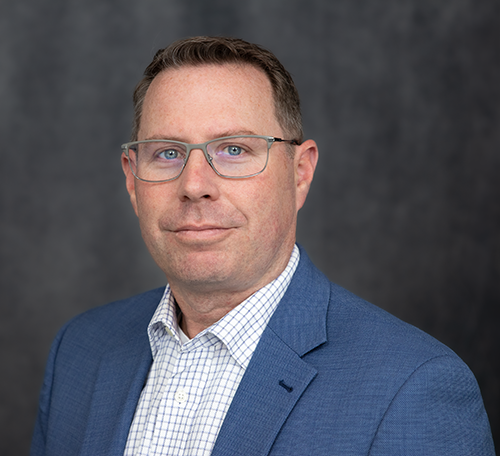Health System CEO Talks Rural Healthcare, ACOs and More
by Kyle Salem, Ph.D. on Mar 28, 2019
 "We continue to invest heavily in imaging and imaging continues to be one of those geese that lays the golden egg for us."
"We continue to invest heavily in imaging and imaging continues to be one of those geese that lays the golden egg for us."
Cassling President Kyle Salem, PhD, recently sat down with Bob Senneff, President and CEO at Graham Health System in Canton, Illinois. They discussed a wide range of topics, including rural healthcare, the importance of including physicians in administrative discussions, the movement toward value-based care and Accountable Care Organizations (ACOs), payer negotiations, imaging’s increasingly valuable role within healthcare organizations, and how to succeed in an increasingly complex field.
The following is an interview transcript edited for clarity and length. If you prefer, you can listen to the full podcast in the player below.
Kyle Salem: Hi, everybody. I'm your host, Kyle Salem. Today I have with me Bob Senneff, President and CEO at Graham Health System in Canton, IL. Welcome, Bob.
Bob Senneff: Thank you, Kyle. I appreciate being able to participate.
Evolving to Meet the Changing Times
Kyle Salem: Give everybody a little bit of a sense of your background. How did you get your start?
Bob Senneff: Literally, my first job out of my residency was as CEO of a small hospital out in Kansas. So I hit the ground running and really never looked back and just built upon my success in Kansas. Thirteen years ago, the position opened up here at Graham. I hadn’t been looking for a position, but I'm the kind of guy who likes to have a lot on his plate, so when things came open with a bigger plate and more on the plate, I researched those opportunities and Canton’s been a great fit for me over the last 13 years.
Kyle Salem: In those 13 years, I imagine Graham has evolved quite a bit from a services and patient-based sort of perspective. Talk a little bit about what Graham is today, both the health system and the patients you serve.
Bob Senneff: Thirteen years ago, we were very hospital-centric and very administrative and trustee-centric versus where we are today. We're very outpatient-centric and very physician-driven. The physicians have a big seat at the table with us. We talk with them on a daily basis. We have a tremendous relationship with our medical staff and we've really flipped. This might not sound real, but it literally was from about 70% inpatient, 30% outpatient, to now, when it's about 80% outpatient, 20% inpatient. We see about 100,000 patients a year in our four clinics. It was probably half of that 13 years ago.
Kyle Salem: As a 124 bed, not-for-profit hospital, how do you see Graham fitting into the broader healthcare landscape?
Bob Senneff: We've got partnerships, both with smaller hospitals or the bigger health systems, the tertiary or quaternary providers. We really feel like we've got our arms around a population of about 40,000 residents who are potential patients for us. We’re going to do everything we can to be their primary healthcare provider of choice.
We're probably a dying breed of independent, financially very strong, very viable organizations. We really feel like those 40,000 stakeholders are where we go for our counsel in terms of the healthcare that gets provided in our area. This morning, we opened a new clinic in Elmwood, it's a new market for us but we really felt there was an opportunity to provide additional primary care and then some specialty care with rotating clinics through that facility. We made the investment of $1.9 million dollars in that facility and, already, we've got plans to do more on that sight in terms of building a YMCA and building community centers. Not everything is contracting in rural America. There are pockets where, if you think through things, there are growth opportunities.
Physician Recruitment
Kyle Salem: That's actually interesting. I'd love to explore two different parts of that answer. One is just this concept you referred to as an independent organization as a dying breed in healthcare. What have you guys done in order to maintain that status as a mid-level community hospital focus but with a health system built around that?
Bob Senneff: We really moved the model to where we're going to be very physician-driven, very clinic-driven, very outpatient-driven. And that helps us to recruit doctors. We don't have a lot of needs in terms of physician recruiting. Our staff at the hospital and the clinic are pretty stable and I think people who have an independent mind like to be with other people who are like-minded.
That resonated well with the doctors. We built four or five new facilities for those doctors to practice in. And we can continue to reinvest money in our people, in our facilities and our technology, so that we have the exact same thing you would have if you went to Peoria. When the doctors come out here, they have the kind of things they're used to working in Peoria. They’re saying ‘You have the tools I need and you bend over backwards to accommodate my schedule, I'll be coming out there and I'll be doing surgery.’
ACOs and Community Wellbeing
Kyle Salem: Coming back to the point we were talking about earlier, with a YMCA or other community wellness opportunities that exist. Is the community asking for those sorts of resources or is this something you're having to push from a health system standpoint?
Bob Senneff: I think it's probably the former, with all the talk and the activity around ACOs (Accountable Care Organizations). We were our own ACO in terms of a self-funded health plan with seven or eight hundred covered lives. Every dollar we could save internally was one less dollar on that check that I had to send to Blue Cross every month.
We started a pretty vibrant wellness system within our own ranks of our seven or eight hundred employees who are covered. And then we started selling those services out to the larger employers in the community. Unfortunately, we don't have a lot of large employers, so a large employer for us might be a bank with 100 employees or the school district or an insurance agency with 15 employees. That business has done well for us.
We understand the problem with healthcare and it's a cost issue, but it's also a volume issue. If you've got healthy people, they're not running up big costs from seeing their doctor on a regular basis. They're not dealing with diabetes or COPD or heart failure, those things that ring up significant hospital bills from somebody with those chronic conditions.
Kyle Salem: So, as you've grown and kind of taken on this broader geographic footprint, specifically, putting clinics into the surrounding community, are there some lessons that you've learned along the way that you would share with other executives or organizations who are looking at similar growth initiatives?
Bob Senneff: You need to be really politically correct in terms of going into a community and just assuming that the community 12 miles down the road is going to come because it's only 12 miles down the road. There are still a lot of loyalties to places that have their own school district or their own businesses. Unfortunately, some folks might drive by three or four smaller communities that each have a car dealer and go to Peoria to buy a car because their kids played football against a car dealership owner’s kid and they lost the game. It’s those kinds of things you need to worry about.
So you have to really be selling what you're providing in that clinic. It is sort of a touchy subject at times when you have those natural allegiances from growing up in your community.
Continue Reading on Page 2 >Meet the Author
Kyle Salem, Ph.D.
President of Cassling
Kyle joined Cassling in February 2005 and was named President in 2017. Kyle holds a doctorate in Biomedical Engineering as well as business education through the Kellogg School of Management. Prior to Cassling, he worked with Siemens Healthcare's Magnetic Resonance Imaging division serving as a scientist and manager.
Today, Kyle strengthens community healthcare by working with customers to ensure Cassling's offerings meet their short- and long-term goals, as well as clinical, financial and organizational needs. With a focus on helping customer increase quality and decrease cost, he manages Cassling's corporate strategy, advising the organization on industry direction and trends to help intelligently drive the growth, while exploring new business opportunities.
Click
here to request more information about Cassling's Speakers Bureau or call 800-228-5462 ext. 1117.



Comments